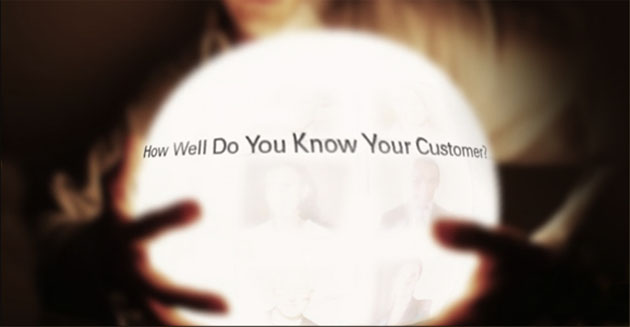I want to start this post with a simple question. How well do you know your customer?
Having spent the best part of the last year as a Digital Marketing Analyst, it’s easy for me to explain all the areas of an analytical role and the importance of understanding your company data.
With Social Media being the only word on every companies’ tongue this millenium, most have looked to Social Media for a remedy in which they will create new and formiddable revenue streams.
For some this has been successful and businesses have tapped into relationships and built engagement with their consumers, however for most, Social Media is still a confusing area and businesses are constantly asking questions as to how they can utilise their Social audience for monetary value.
[singlepic id=100 w=320 h=240 float=right]
This is generally when a guru enters the building assisting you with the ultimate formula for success, which is usually something like this:
(Engagement * interactions) / page impressions + retweets √ your mum = an upward rise in fans from Uzbekistan and spam replies to your marketing messages. One word to that… #WINNING
A Marketing Analyst works on the opposite end of the spectrum to those focusing on engagement. Analysis is a research method and is based primarily on creating an understanding of the consumer using aggregated data.
Stereotyped as Star Trek looking, Mathmatical nerds who write algebra on steamy windows; Analysts have long been categorised as zombies who supply business executives with answers as and when they need them. The stereotype couldn’t be further from the truth; on the contrary Analysts do hold all the answers.
Now before you get all buzz word on me; I’m all for Social Media. Social Media is an integral part of the marketing strategy and as an Analyst, Social Media just presents me with an array of platforms that need analysing. Be that as it may, Social Media is not the be all and end all, data is.
Why are Analytics so important?
Well you see those financials you look at wondering if you can afford your all inclusive holiday to Cancun; those financials will only increase if you know who your customer is.
It was an annoying but extremely successful Duncan Bannatyne who quoted; “If I was to give you one piece of advice in business; it’s to know who your customer is.”[singlepic id=102 w=320 h=240 float=right]
It’s not like we can sit down face to face an interrogate every single one of our online customers, asking them:
- Who are they?
- Where are they from?
- How did they find out about us?
- Why are they interested?
- Did they spend? If not, why not?
- How did they find the experience?
But you can ask all these kind of questions into your data analytics platform and yes it will spit out the answers you need.
I define myself as a person who asks questions. I may ask way too many at times, pissing people off and causing myself all kinds of bother, but I’m not easily pleased and I don’t like fluff. I need definitive answers and I need those to be backed up with evidence.
Nowdays most digital companies have analytics measuring their products, whether it be a free offering such as Google Analytics or a premium service like Adobe Omniture; companies are interested in measuring.
The problem is that while companies want to measure and know the importance of the data that backs up their campaign strategies; they don’t have specific members of staff who’s jobs are to crunch this data and provide compelling answers to their demanding questions. This forms a common problem as the priority of the business is to raise awareness and push the products, but companies do so with a lack of understanding and insight into who their customer actually is.
I had a meeting recently where I made it clear how important analytics are in digital business. I was even asked, that if I could set up my own team, what would it comprise of. I replied simply; that I would need staff of expertise in development, project management, marketing and strategy, but I would want each of my staff to have a clear understanding of analytics. I would also expect them to use analytics on a regular basis so that the whole team has a clear interpretation of who our consumer is.
I found the below quote in the Havard Business Review under an article titled ‘Competing on Analytics’ and it pretty much sums up this post.
Employees hired for their expertise with numbers or trained to recognize their importance are armed with the best evidence and the best quantitative tools. As a result, they make the best decisions: big and small, every day, over and over and over.”
An Analyst is trained to recognize problems and come up with solutions. An Analyst is responsible for explaining how the customer/consumer uses the product/service, what their experience with it was like and how the business can improve the product/service.
Our analytics tell us stories and if you don’t have an Analyst, it is imperative that you have people who know how to read data, because if you don’t use analytics to answer the fundamental questions surrounding your products; how can you truly know who your customer is?

